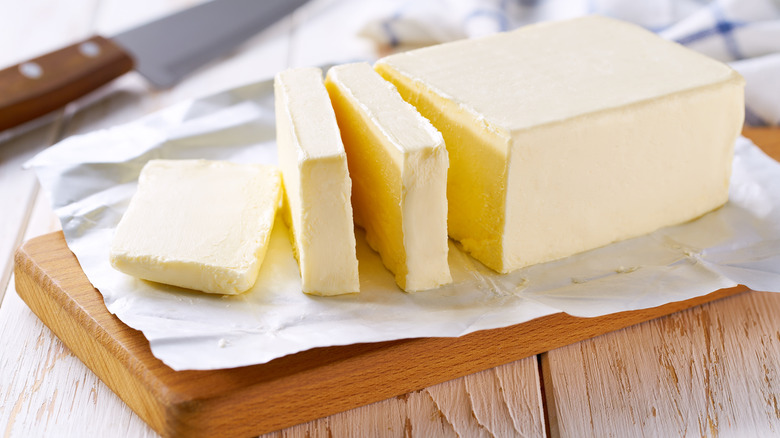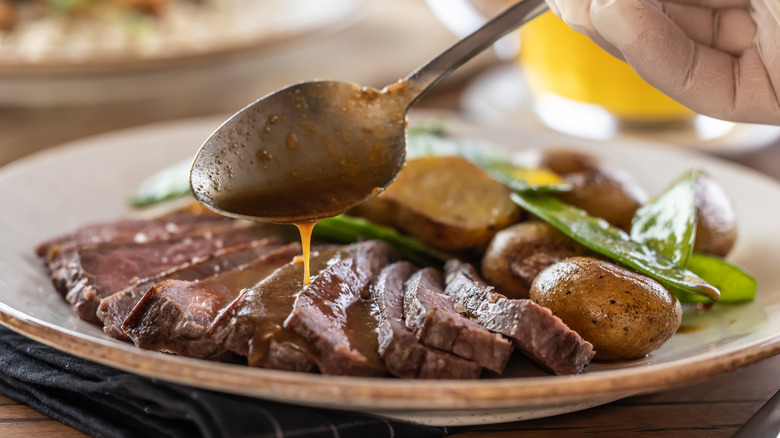The Butter Trick You Need For Restaurant-Style Pan Sauce
We've all had moments when a homemade dish isn't tasting quite how we want it to. Before panic ensues, the answer may already rest in the pan you're cooking with. If you have leftover browned bits on the bottom of your pan, you're well on your way to making a pan sauce. All you need are a couple of simple ingredients, along with some cold butter, to take your sauce to the next level.
Starting with some broth or stock for deglazing is great, but no worries if you don't have either on hand — water works, too. Once you've removed your seared steak or sautéd mushrooms, you'll want to pour your liquid of choice into the pan with the leftover bits. After heating them together, reduce the mixture to ensure it thickens.
This is where a few of squares of cold butter come in. Butter has the magical power to turn just about any dish into a flavorful, savory masterpiece. When it comes to pan sauces, it's the best way to elevate them from good to great. The key is to ensure the butter you use has just come from the fridge, and cutting it into pats or cubes allows you to easily add it bit by bit as you whisk. The cold temperature encourages the sauce components to emulsify instead of separating into a greasy mess, creating a rich taste and velvety texture. This is the very same reason there is a wrong and right time to add butter to pasta sauce. With the added flavor and fat from the butter, your pan sauce will definitely be restaurant-worthy.
Additional tricks to try to enhance a pan sauce
Using cold butter elevates the flavor, aroma, and texture of your pan sauce, but you also might need a little something extra to ensure your sauce is the best on the block. First, you can incorporate good old aromatics like garlic or onion. Typically, you'll want to add them after you've removed the food you've cooked but before you pour in the liquid. Sauté the finely chopped alliums with the leftover fat and browned bits on the bottom of the pan to create a slightly sweet and savory base. The aromatics will provide a bold, but not too intense, flavor to give your pan sauce the boost it needs.
Adding herbs — like a pinch of rosemary or oregano — can provide a fresh, bright flavor and make the sauce more aesthetically pleasing. A little dash of acidity from lemon juice or white wine will also give it a slight kick to really top off the flavor profile.

